All products featured are independently chosen by us. However, SoundGuys may receive a commission on orders placed through its retail links. See our ethics statement.
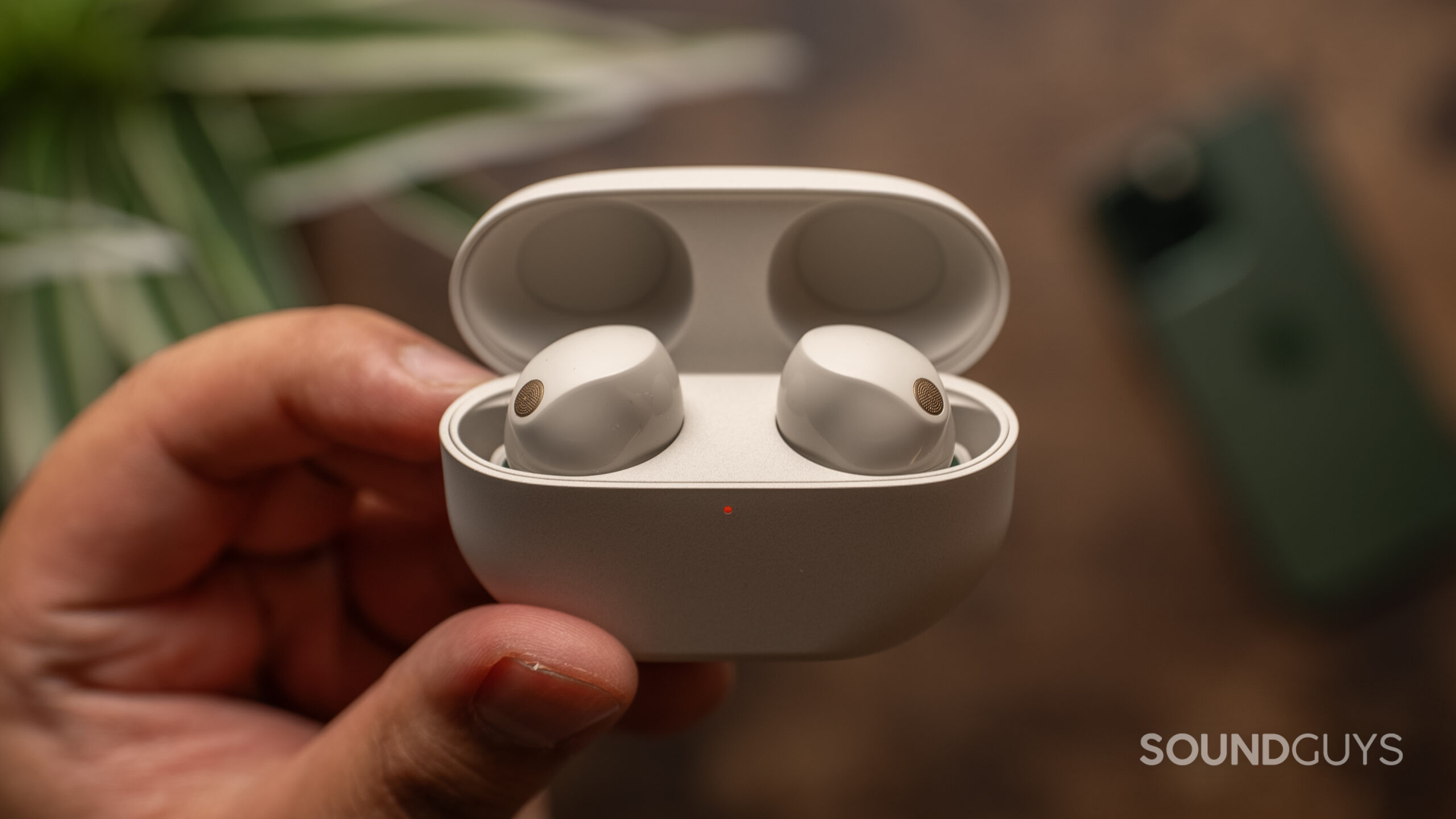

Sony WF-1000XM5 review
May 23, 2025


Sony WF-1000XM5
Case: 65 x 27 x 40 mm 38 g
Ear-tip sizes: Multiple
Case: 38g
The world of noise canceling earbuds is like a three-way tug-of-war between Apple, Bose, and Sony. This year, Sony hopes to flex its active noise canceling (ANC) prowess with the release of its latest flagship earbuds, the WF-1000XM5.
Building off the success of 2021’s WF-1000XM4, Sony’s third-generation ANC earbuds promise improved noise canceling performance, better sound quality, and increased comfort. But do these earbuds really have what it takes to pull ahead, or is Sony starting to feel the heat from its competitors?
- This review was updated on May 23, 2025, to note the update schedule.
- This review was updated on April 30, 2025, to fix an error in the isolation and ANC scores.
- This review was updated on February 26, 2025, to fix FAQ, small errors, list new options.
- This review was updated on November 21, 2024, to update recommendations.
- This review was published on July 24, 2023.
The Sony WF-1000XM5 are perfect for anyone willing to pay a premium for in-ears with outstanding active noise cancelation performance and decent sound quality. Avid gym-goers looking to zero in on their workouts will appreciate these buds for their IPX4 water resistance. Regarding platform compatibility, Android and iOS users will benefit equally from Sony’s comprehensive app features.
What’s it like to use the Sony WF-1000XM5?
The recycled paper packaging contains the Sony WF-1000XM5 earbuds, the charging case, a USB charging cable, three additional sizes of polyurethane foam ear tips, and some documentation. This time, Sony has added a pair of extra-small ear tips, which should help people with smaller ear canals ensure a proper fit.

Sony’s latest earbuds feature a plastic enclosure with a glossy finish on the sides and a matte finish for the touch control areas. I wish that Sony had kept the all-matte aesthetic from the Sony WF-1000XM4. The glossy coating doesn’t look as premium as the company’s previous earbuds, making the buds feel slippery. Just be extra careful handling them when standing near a sewer grate.
Placing the Sony WF-1000XM5 in my ears for the first time, I noticed how comfortable they were. According to Sony, the earbuds are 25% smaller and 20% lighter than their predecessor, which makes them easier on the head during longer listening sessions.
Sony has also improved the internal structure of its ear tips by making them more flexible, and they’ve also designed the earbuds with more angled nozzles. While these design tweaks may seem minor, they go a long way in improving comfort.
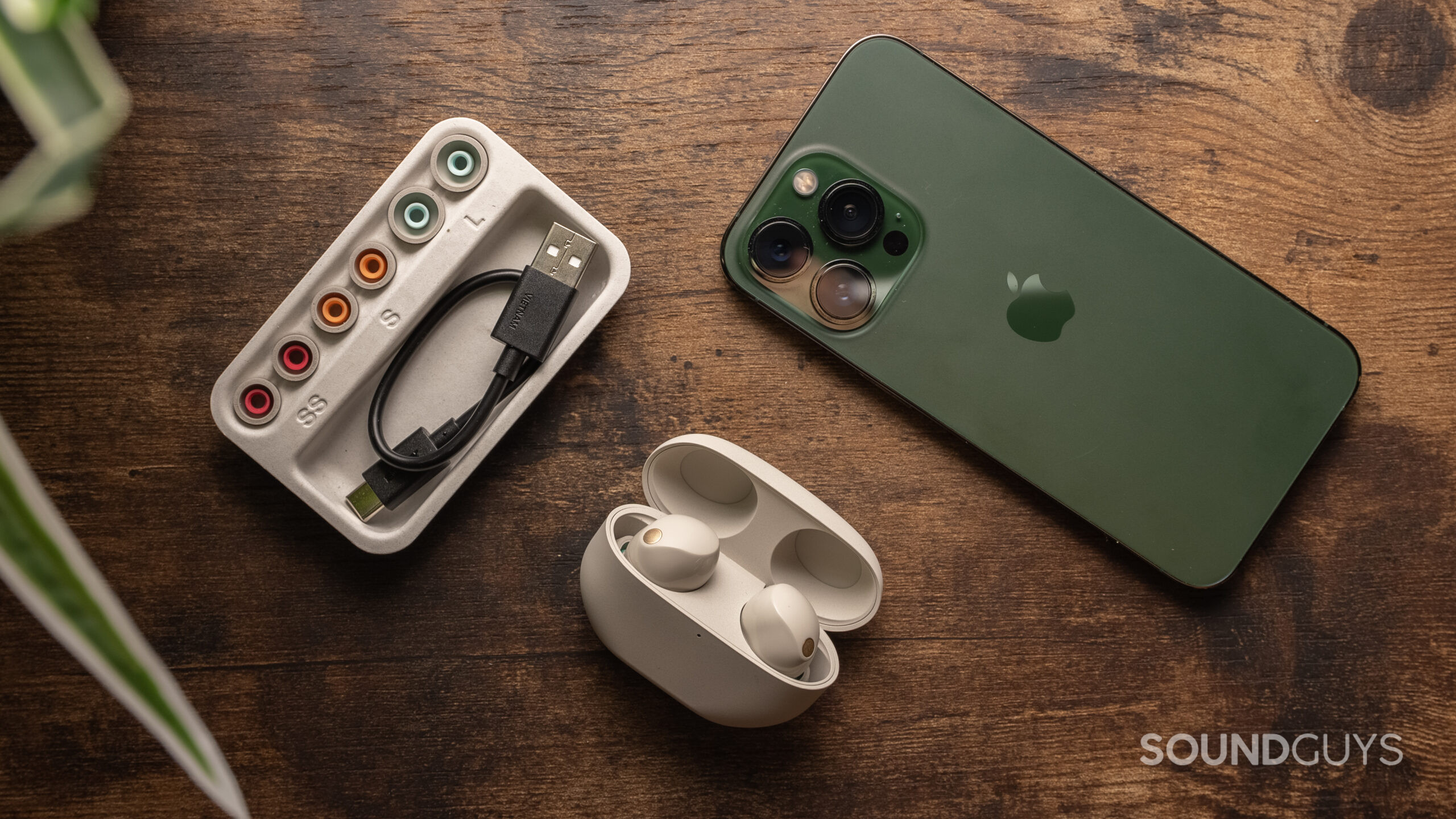
The stiff foam ear tips were a big reason I switched from the Sony WF-1000XM4 to the Apple AirPods Pro (2nd Generation) as my daily driver buds. Sometimes, the Sony WF-1000XM4 would pop out of my ears, even if I wasn’t moving my head. I’m happy to report that this is no longer true with the Sony WF-1000XM5. Gone are the days when you need to jam and twist the earbuds into your ears to attain a proper seal.
Sony has also made a few changes to the WF-1000XM5 charging case. Unlike the earbuds, the case features a speckled matte coating that looks and feels similar to the recycled paper packaging. The charging case is also 15% smaller than its predecessor, and it now features a dedicated pairing button on the back and a tiny LED indicator on the front. The charging case supports USB-C charging, Qi wireless charging support, and enough battery life for three charge cycles.
The Sony WF-1000XM5 is not waterproof but has an IPX4 water resistance rating. The earbuds can withstand a light drizzle outdoors or a heavy workout at the gym. Just make sure to keep the buds and case away from the pool.
How do you control the Sony WF-1000XM5?
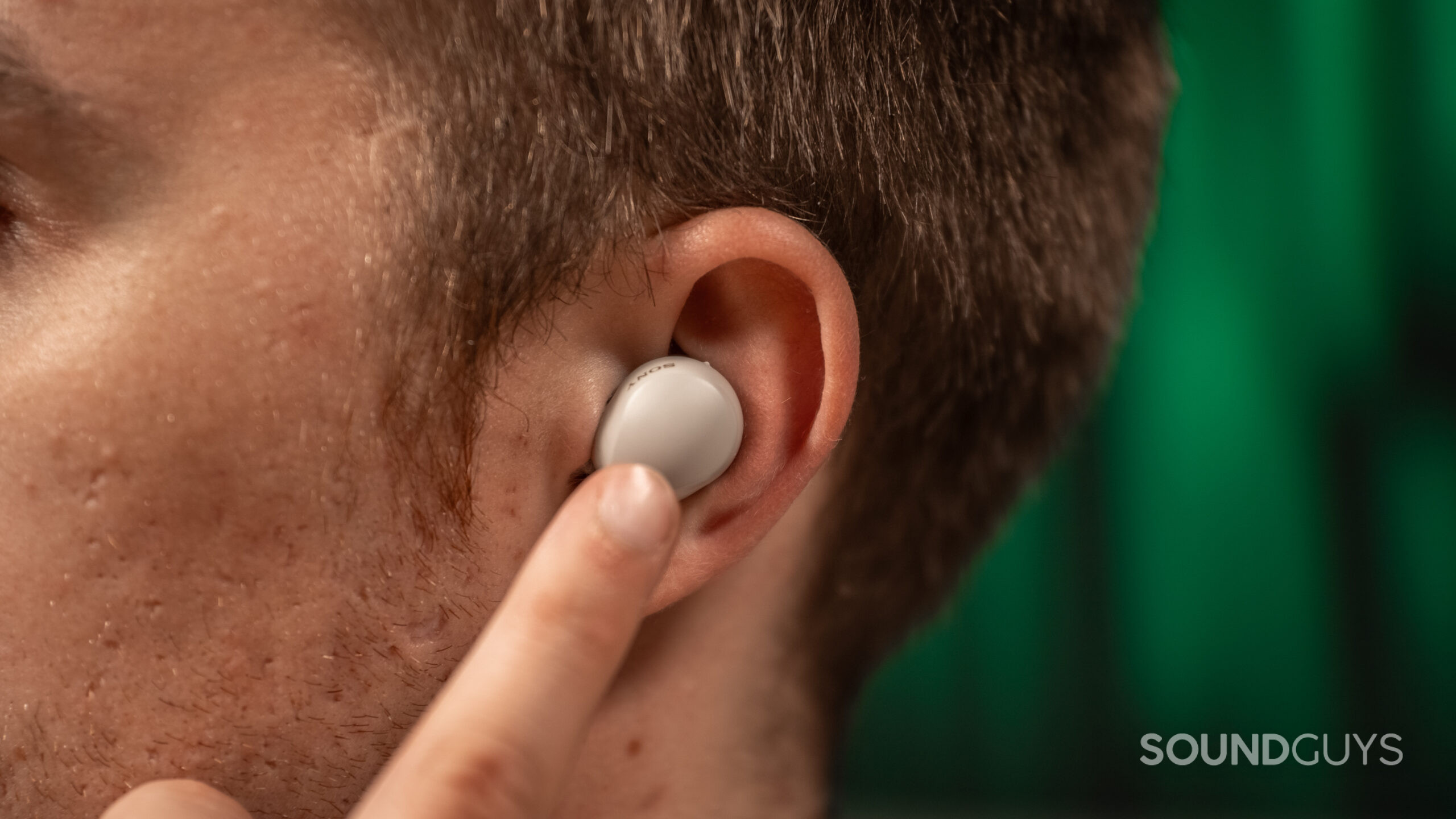
Sony has improved on touch control operation with the WF-1000XM5. With previous generations, you could only perform a single set of functions for each earbud. This time, however, you can trigger several actions right out of the box.
You can find a brief rundown of the default controls below.
| Input | Left earbud | Right earbud |
|---|---|---|
| Input One tap | Left earbud ANC/Ambient sound | Right earbud Play/Pause |
| Input Two taps | Left earbud Quick Access | Right earbud Next |
| Input Three taps | Left earbud Quick Access | Right earbud Previous |
| Input Four taps | Left earbud Volume Down | Right earbud Volume Up |
| Input Tap and hold | Left earbud Quick Attention | Right earbud Voice Assistant |
Taking an earbud out of your ear will automatically pause your music on both buds and enable Sony’s passthrough feature on the other. Alternatively, you can hold down on the left earbud control to activate the passthrough mode.
Should you use the Sony Sound Connect for the WF-1000XM5?
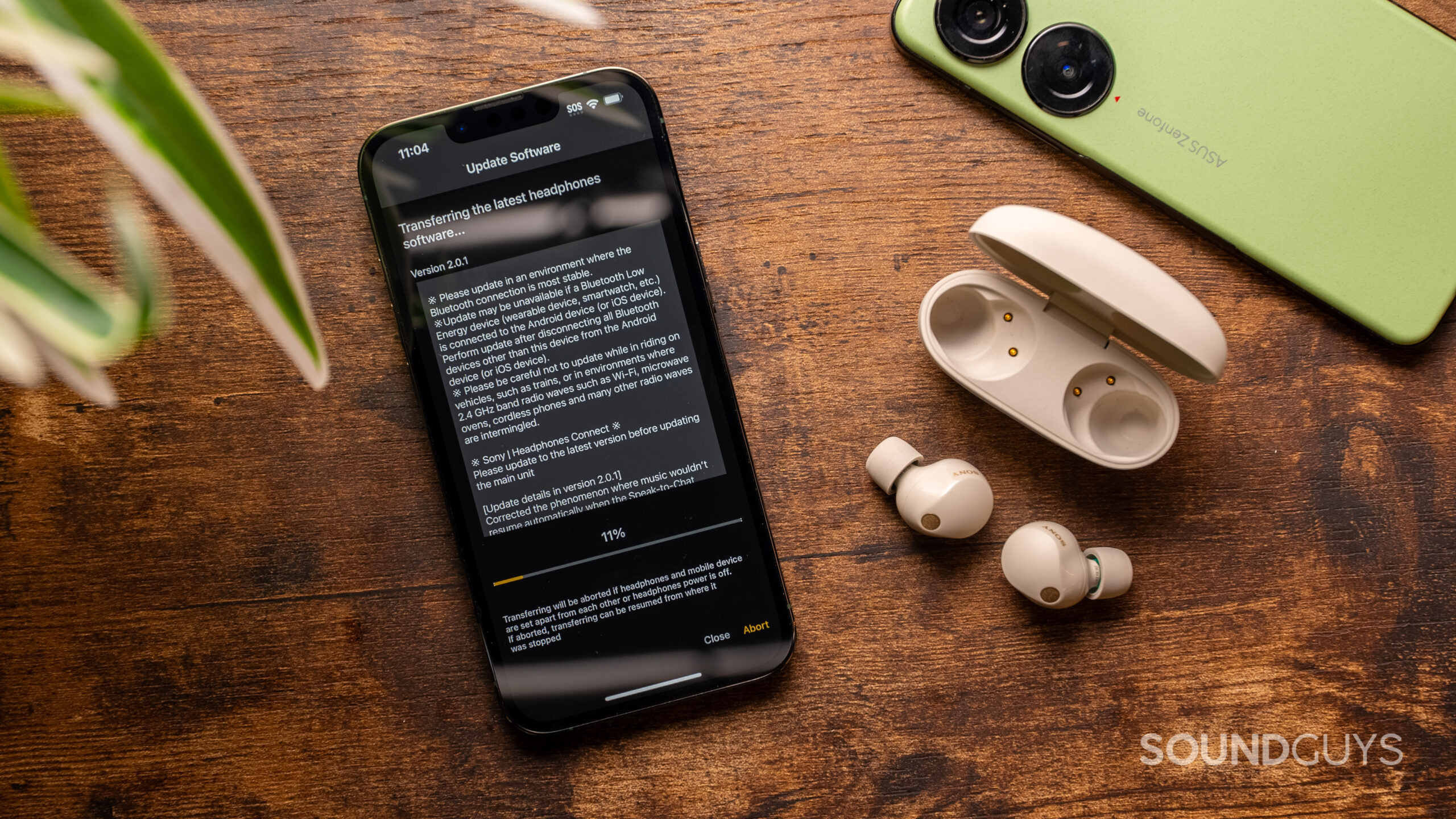
Downloading the Sony Sound Connect App is key to unlocking the earbuds’ full functionality. Besides firmware updates, the app lets you create custom EQ profiles, adjust Ambient Sound, and customize touch sensor functions. It’s available on both Android and iOS. The Headphones Connect app is also necessary to enable Sony 360 Reality Audio, Speak-to-Chat, and DSEE Extreme, which is Sony’s proprietary algorithm for upscaling lower-quality, lossy audio files.
How does the Sony WF-1000XM5 connect?
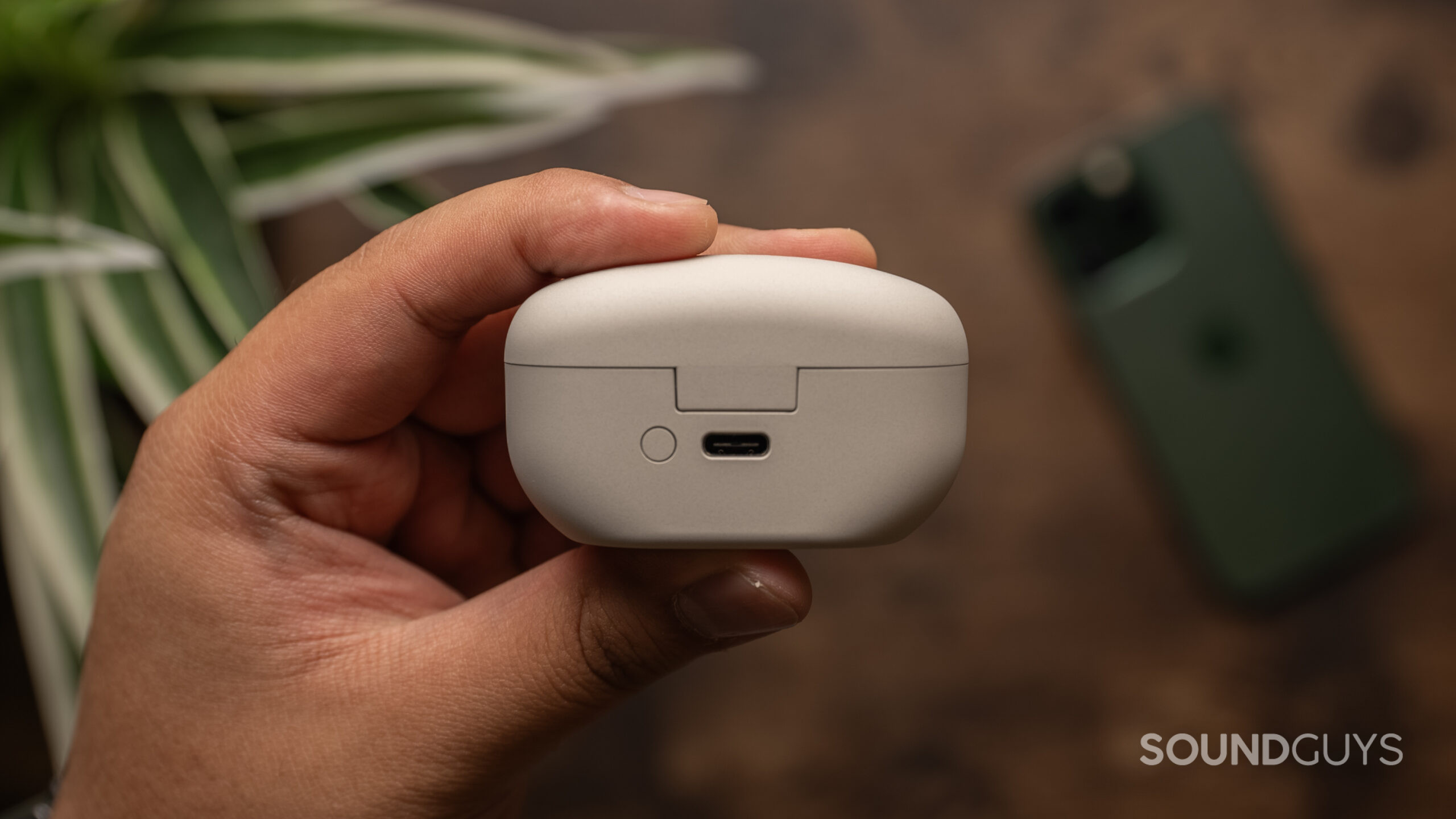
The Sony WF-1000XM5 supports Bluetooth 5.3. In terms of codecs, the earbuds include the usual suspects: SBC and AAC, as well as Sony’s higher-quality LDAC codec. The earbuds also support LE audio for low-latency streaming. Unfortunately, Sony has not included aptX or aptX HD support with its third-generation ANC earbuds.
The dedicated pairing button on the WF-1000XM5 is a welcome addition, as anyone who’s ever owned a pair of AirPods or Samsung Galaxy Buds will be familiar with the setup process. This contrasts with the Sony WF-1000XM4, which requires placing the earbuds in your ear and holding the touch sensors for eight seconds.
- Open the charging case lid, keeping the earbuds inside.
- Hold down the pairing button at the back of the case until the LED indicator in the front pulses blue.
- Go into your phone's Bluetooth settings and select the Sony WF-1000XM5 from the device list.
The earbuds also support Bluetooth multipoint, which allows you to connect up to two devices simultaneously. The earbuds do a snappy job of switching between my MacBook Pro and iPhone, and I didn’t encounter any lag or connection drops.
How long does the Sony WF-1000XM5 battery last?

Despite its diminutive stature, Sony claims that the WF-1000XM5 should last you eight hours of continuous playback and up to 24 hours, including the charging case — the same as with the WF-1000XM4. In our testing, the Sony WF-1000XM5 lasted 9 hours and 32 minutes on a single charge — over an hour longer than its predecessor. You can charge the Sony WF-1000XM5 using a USB-C cable or place the case on a Qi wireless charging pad.
If you need to juice up in a pinch, you can take advantage of the earbuds’ Super Quick Charge feature. According to Sony, just three minutes of charging should provide 60 minutes of playtime. In our testing, the earbuds lasted closer to 51 minutes with 3 minutes of charging — just short of Sony’s claims. However, that should be just enough time to cover a full-body workout.
How well does the Sony WF-1000XM5 cancel noise?
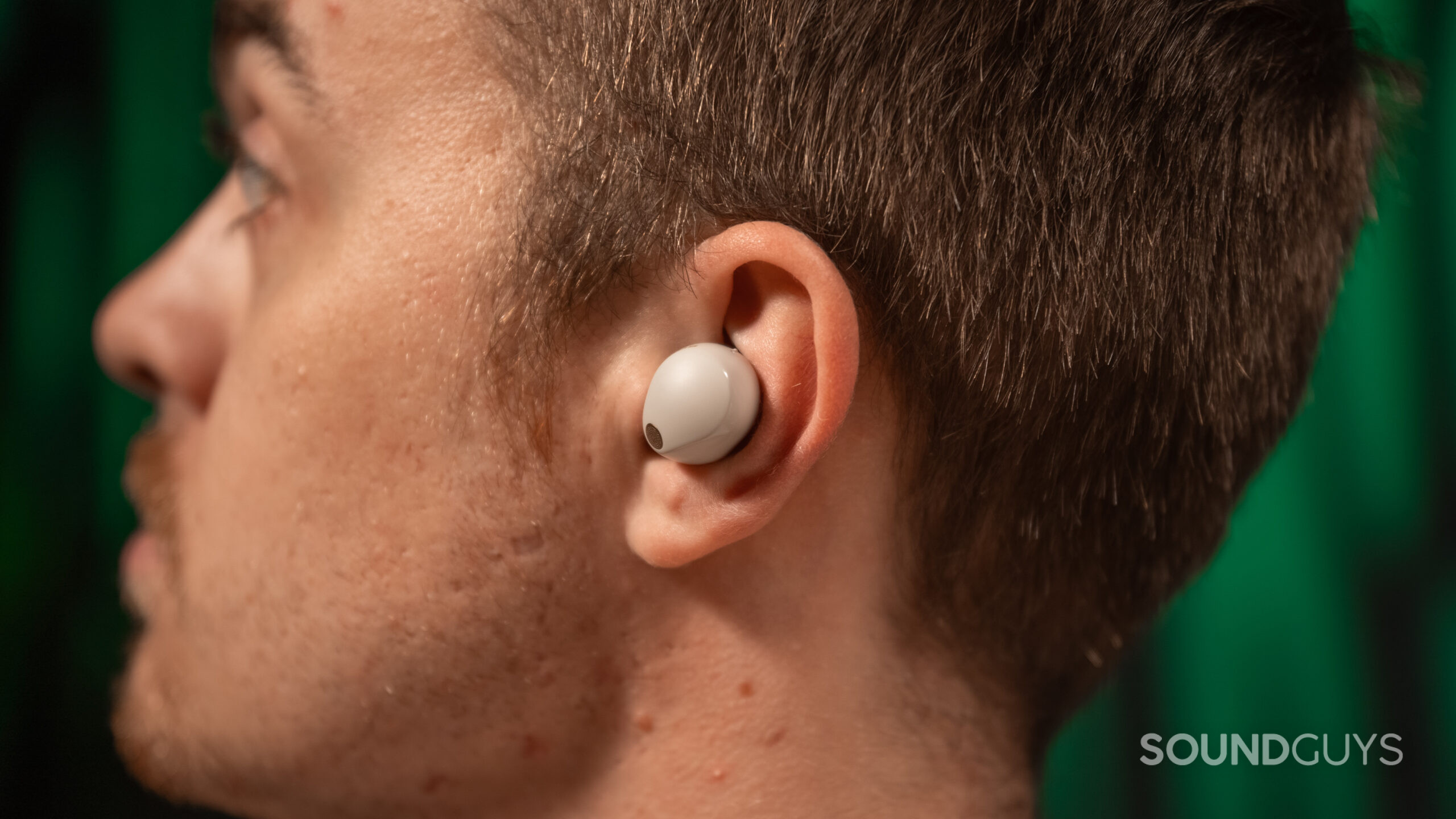
The Sony WF-1000XM5’s active noise canceling performance is a step up from its predecessor and one of our top picks. These buds feature excellent ANC performance, and the improved ear tips provide a secure fit, increased comfort, and excellent isolation. Good isolation gives the earbuds the best chance at blocking out incidental high-frequency noise like construction clatter or the screech of a subway car.
Loading chart ...
The updated foam ear tips are more flexible and do a great job of blocking out incidental noise. These new ear tips provide better isolation than those supplied with the WF-1000XM4, reducing noise by up to 15dB in the low end and up to 50dB for sounds above 1kHz. That’s comparable to good earplugs.
Sony equipped the WF-1000XM5 with two new processors: the Integrated Processor V2 and the HD Noise Canceling Processor QN2e to improve ANC performance. In combination, these allow the earbuds to process the signals from the six microphones (three on each bud). New dual feedback mics on the WF-1000XM5 are used to better monitor noise in the low frequencies.
According to our testing, the ANC attenuates over 30dB of low-frequency outside noise (below 1kHz), combined with impressive passive isolation. This makes the WF-1000XM5 a great companion for daily commuters, frequent flyers, or anyone working in a busy office or cafe. This all makes the Sony WF-1000XM5 a treat to use. During my morning commute, the earbuds do a good job blocking out the screeches and clatter of old subway cars, letting me tune out before I get dialed in for the working day.
For times when you need to hear your surroundings, you can tap the left earbud once to toggle the ANC function to Ambient Sound mode, allowing some environmental sound through. You can adjust the amount of ambient sound you hear in the Sony Headphones Connect app.
Wind noise reduction
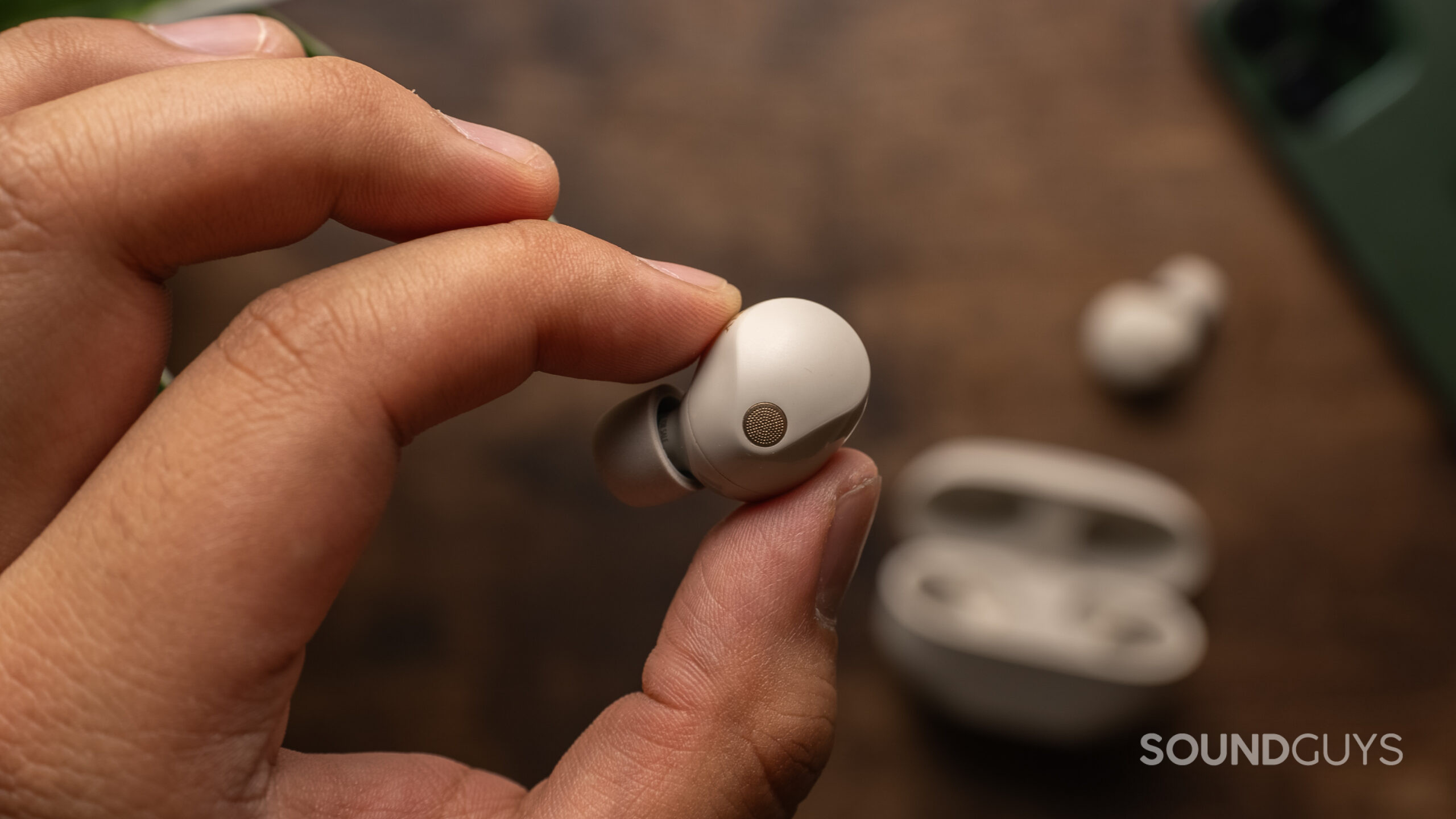
Sony has also done a great job when it comes to reducing wind noise. ANC performance is often compromised in windy conditions, but Sony has addressed this problem with the WF-1000XM5 microphones. This makes a huge difference when I’m walking outside on a windy day or standing next to the tracks as the subway pulls into the station. Even with a moderate breeze hitting my face, I didn’t hear any distortion nor notice any decrease in the earbuds’ noise canceling performance.
How does the Sony WF-1000XM5 sound?
In short, the Sony WF-1000XM5 sound excellent to most people, and that’s a feat.
Multi-Dimensional Audio Quality Scores (MDAQS)
The chart below shows how the sound of the PRODUCT was assessed by the Multi-Dimensional Audio Quality Score (MDAQS) algorithm from HEAD acoustics.
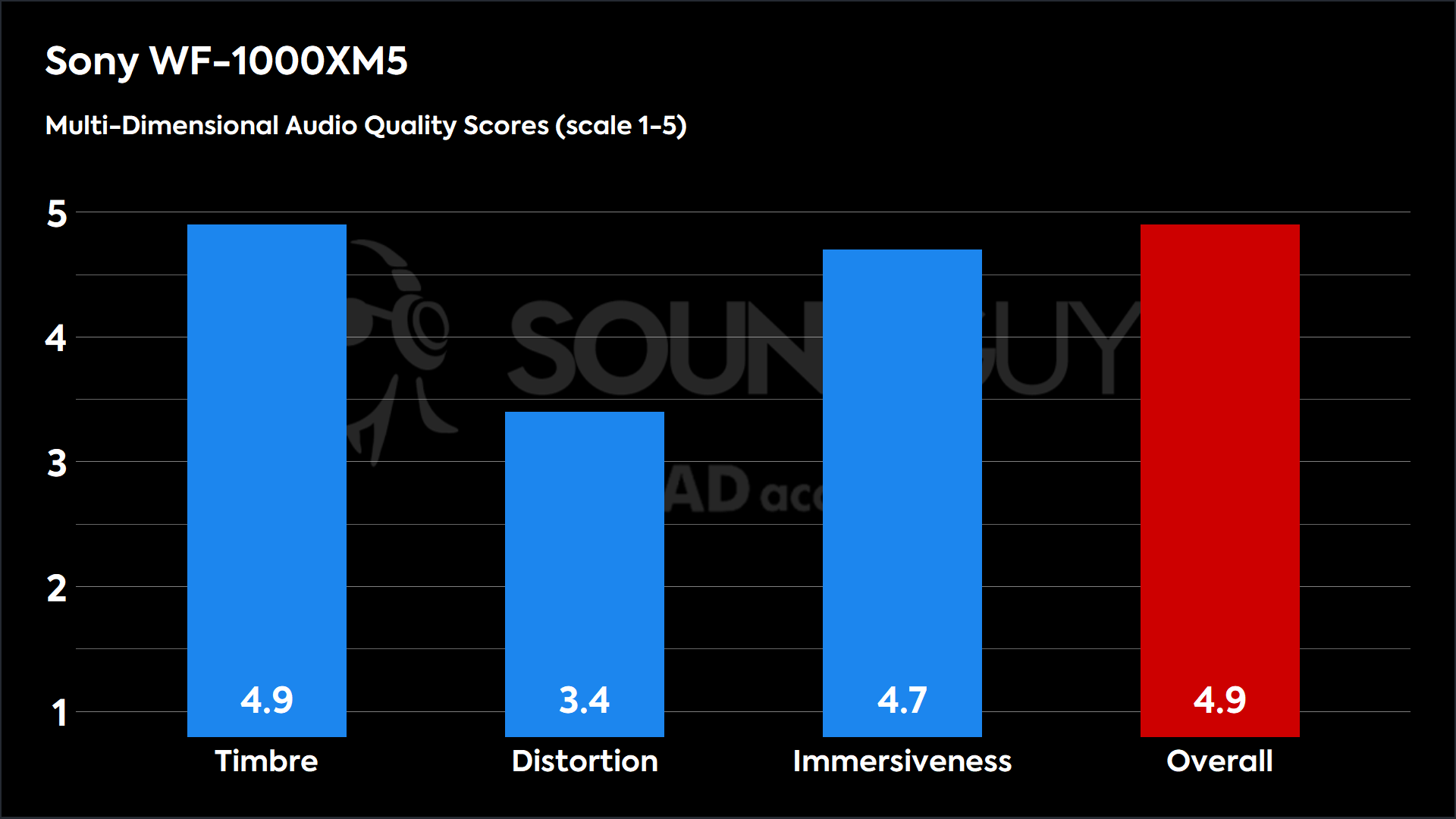
For most people, the sound of the Sony WF-1000XM5 will be pleasing, owing to its tuning and strong ability to maintain a convincing illusion of 3D space with a stereo image. Though you may notice distortion now and again, it doesn’t seem to rise to the level of being all that annoying to a virtual panel of hundreds of listeners. Overall, these earbuds post one of the highest overall MDAQS ratings we’ve come across, and it means there’s a strong likelihood that you’ll like their sound.
- Timbre (MOS-T) represents how faithfully the headphones reproduce the frequency spectrum and temporal resolution (timing information).
- Distortion (MOS-D) represents non-linearities and added noise: higher scores mean cleaner reproduction.
- Immersiveness (MOS-I) represents perceived source width and positioning: how well virtual sound sources are defined in three-dimensional space.
Reviewer notes:
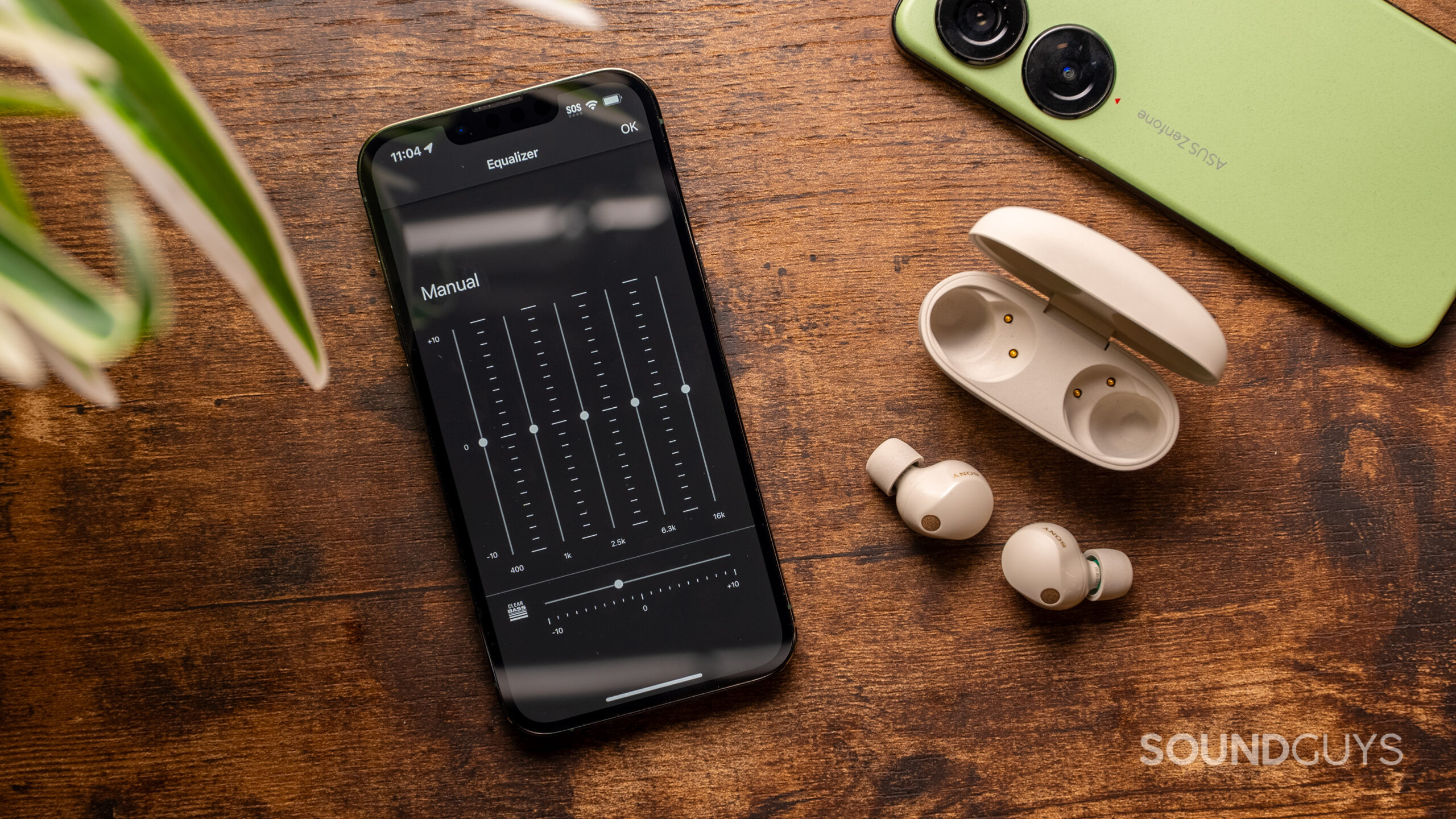
Listening to Tory Lanz’s The Color Violet immediately showcases some of the changes Sony has made to the sound of its latest flagship earbuds. There is an emphasis on the lower frequencies, and the kick drum and bass synths sound overrepresented. This low-end emphasis is sweet during workouts, where I lean on hip-hop and EDM tracks to push me through my bench press. However, in quiet environments, such as in an office or home, these buds make it hard to listen to bass-heavy songs over long periods.
We Can Form An Attachment by Kris Bowers reveals a lot about the sound quality of these new Sonys. While listening with these buds, the cellos and double basses in the track are too full-sounding. However, I still hear a good amount of treble detail as the violins alternate between expressive legato and staccatos. I also noticed the WF-1000XM5 produces a wider soundstage than its predecessor, as I can more easily distinguish the different string sections within the orchestra.
Objective measurements:
Loading chart ...
Testing on our B&K 5128 artificial head reveals that the Sony WF-1000XM5’s frequency response deviates from our headphone preference curve mainly at the low end (the left side of the chart). There is a noticeable emphasis between 30-300Hz. This bump in bass and mid-bass frequencies explains why cellos, synth pads, and other bassy tones can sound more prominent than you may be hoping. The earbuds retain vocal and instrument clarity even when bass instruments get loud, a testament to the new 8.4mm dynamic drivers, upgraded from the 6mm drivers found on the WF-1000XM4.
Note that we’ve only been looking at the default, out-of-the-box sound quality of the Sony WF-1000XM5. If you prefer less low-end emphasis (or even more), you can remedy this by creating a custom EQ preset in the Sony Headphones Connect app. I’d recommend turning down the Clear Bass slider just a notch or two.
If you want to customize further, you could enable Adaptive Sound Control, which lets you set custom noise cancelation and EQ profiles depending on your location or activity. For example, you can set the headphones to reduce bass frequencies at work or home, then turn up the bass while you’re pushing plates at the gym.
Can you use the Sony WF-1000XM5 for phone calls?
Sony puts a lot of engineering effort into its microphone quality, though the Sony WF-1000XM5 mics don’t hold a candle to those of the over-ear WH-1000XM5.
Take a listen to our standardized mic samples and vote in our mic poll below.
Sony WF-1000XM5 microphone demo (Ideal conditions):
Sony WF-1000XM5 microphone demo (Reverberant Space):
Sony WF-1000XM5 microphone demo (Office conditions):
Sony WF-1000XM5 microphone demo (Street conditions):
Sony WF-1000XM5 microphone demo (Windy conditions):
How does the microphone sound to you?
Should you buy the Sony WF-1000XM5?

The Sony WF-1000XM5 is among the best noise canceling earbuds currently on the market, and they aren’t cheap. Priced at $299.99, these earbuds aren’t the best choice for budget-conscious listeners. But if you prioritize active noise cancelation, sound quality, and extensive software support, the WF-1000XM5 is worth its premium price tag and is one of the best wireless earbuds you can buy.
Now that these earbuds are a fair bit old in the grand scheme of things, it’s possible you may want to wait for the Sony WF-1000XM6, or whatever supersedes these earbuds. I say that because while there’s plenty to like about the XM5s in 2025, Sony has a pretty predictable release schedule, and these are next up for a refresh.


Based on the available launch data for the Sony WF-1000XM series, we observe a pattern of new model releases approximately every two years: the WF-1000XM3 in 2019, the WF-1000XM4 in 2021, and the WF-1000XM5 in 2023. This biennial cadence has held consistent for the last three cycles. Given that the WF-1000XM5 launched in 2023 and considering Sony’s regular update rhythm, our informed forecast is that the next model in the family will likely debut in 2025. We continue to gather reliable information to improve this prediction as official news becomes available.
How does the Sony WF-1000XM5 compare to Apple AirPods Pro (2nd Generation)?
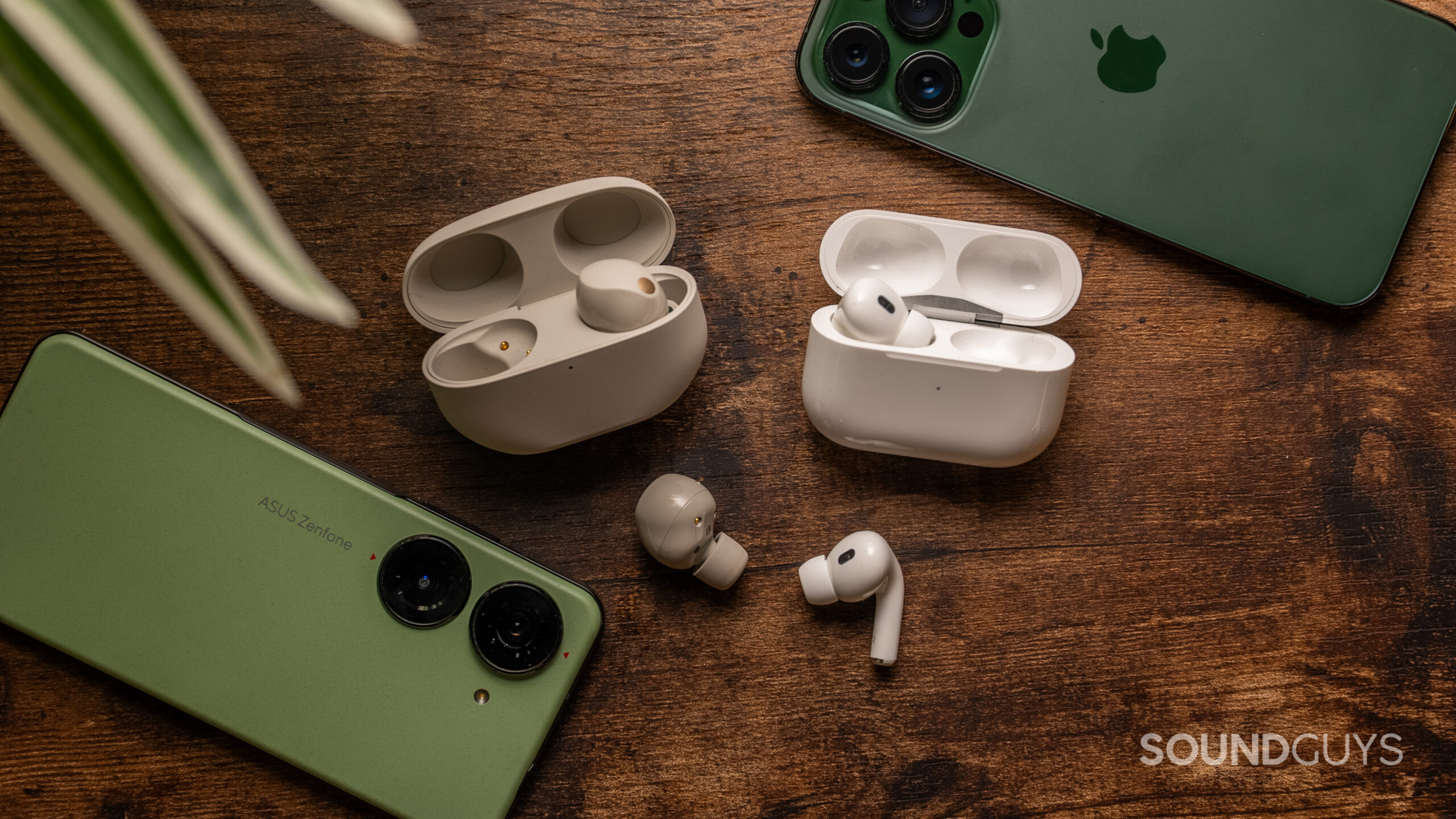
The AirPods Pro (2nd Generation) is ideal for anyone knee-deep in Apple’s device ecosystem. But how does it compare to the Sony WF-1000XM5?
The Sony WF-1000XM5 reduces noise better than the AirPods Pro (2nd Generation) — especially in the mid and high frequencies. Sony’s flagship earbuds also include more comprehensive software controls via the Headphones Connect app, boasting better compatibility with Android devices. On the other hand, the AirPods Pro (2nd Generation) features a more comfortable fit, seamless pairing with Apple devices, hearing aid function, intuitive touch controls, and automatic switching between Apple devices.
Loading chart ...
Regarding sound quality, Apple’s earbuds align closely with our headphone preference curve — more so than the Sony WF-1000XM5. We expect you’ll prefer the out-of-the-box sound of the AirPods Pro (2nd Generation) to Sony’s offering, though you can always create your own EQ preset to suit your listening preferences.
What should you get instead of the Sony WF-1000XM5?
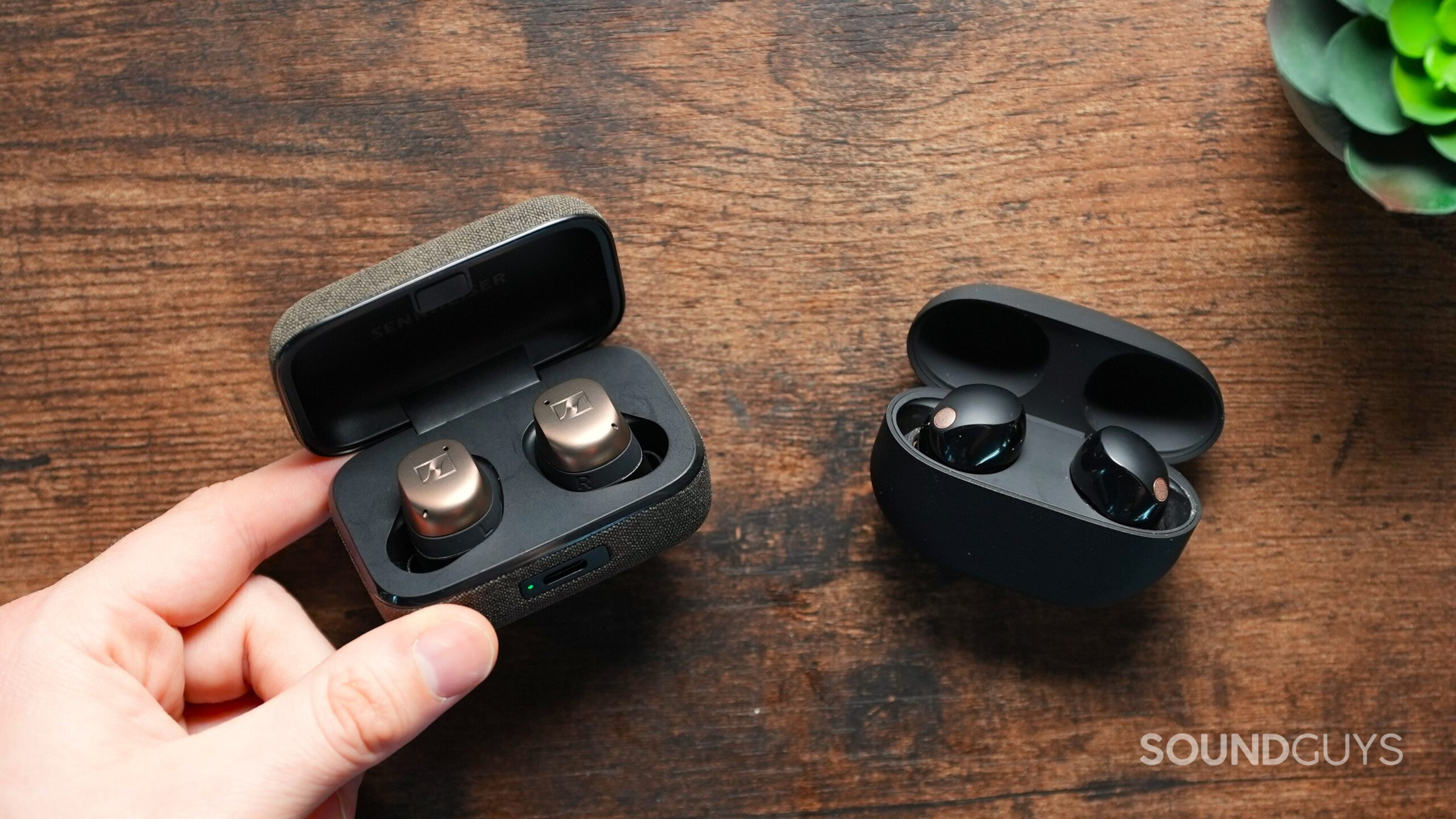
Besides the AirPods Pro, the Sennheiser MOMENTUM True Wireless 4 are worth considering. While the Sony model edges out Sennheiser in active noise cancelation performance, the MOMENTUM True Wireless 4 offers superior sound quality that audiophiles will appreciate. Sennheiser’s earbuds also provide more future-proofing with support for LE Audio and Auracast technology. The MOMENTUM buds have a more fashionable design with metallic accents that some may prefer over Sony’s understated look. If you prioritize sound fidelity and want to future-proof your purchase with cutting-edge Bluetooth codecs and connectivity, the Sennheiser MOMENTUM True Wireless 4 is an excellent premium alternative to consider for the same price of$269.95 at Amazon.
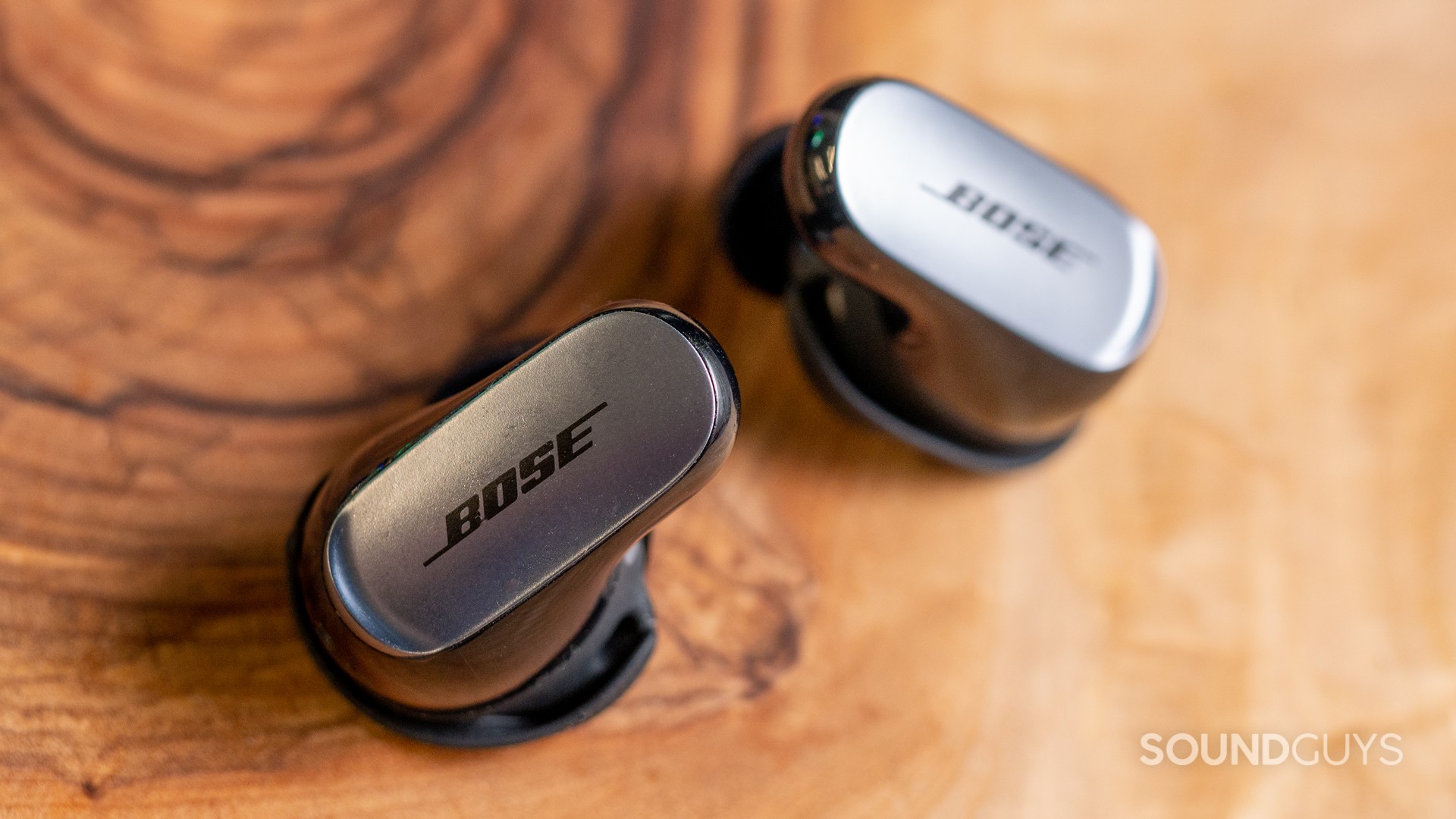
If you have a relatively new Android phone, you should also consider the Bose QuietComfort Ultra earbuds ($299 at Amazon). While the Sony earbuds provide excellent noise cancelation, the Bose model actually surpasses it with some of the best active noise cancelation performance available in truly wireless earbuds. The Bose QuietComfort Ultra also utilizes an ovoid earbud shape that some users may find provides a more secure and comfortable fit compared to the cylindrical shape of the Sony buds. For Android users, the Bose Buds have an extra advantage with Snapdragon Sound support and Bluetooth 5.3 for enhanced connectivity and future-proofing features. However, the WF-1000XM5 delivers a more neutral, balanced sound profile, while the Bose leans toward emphasized bass and treble that not all listeners will prefer.
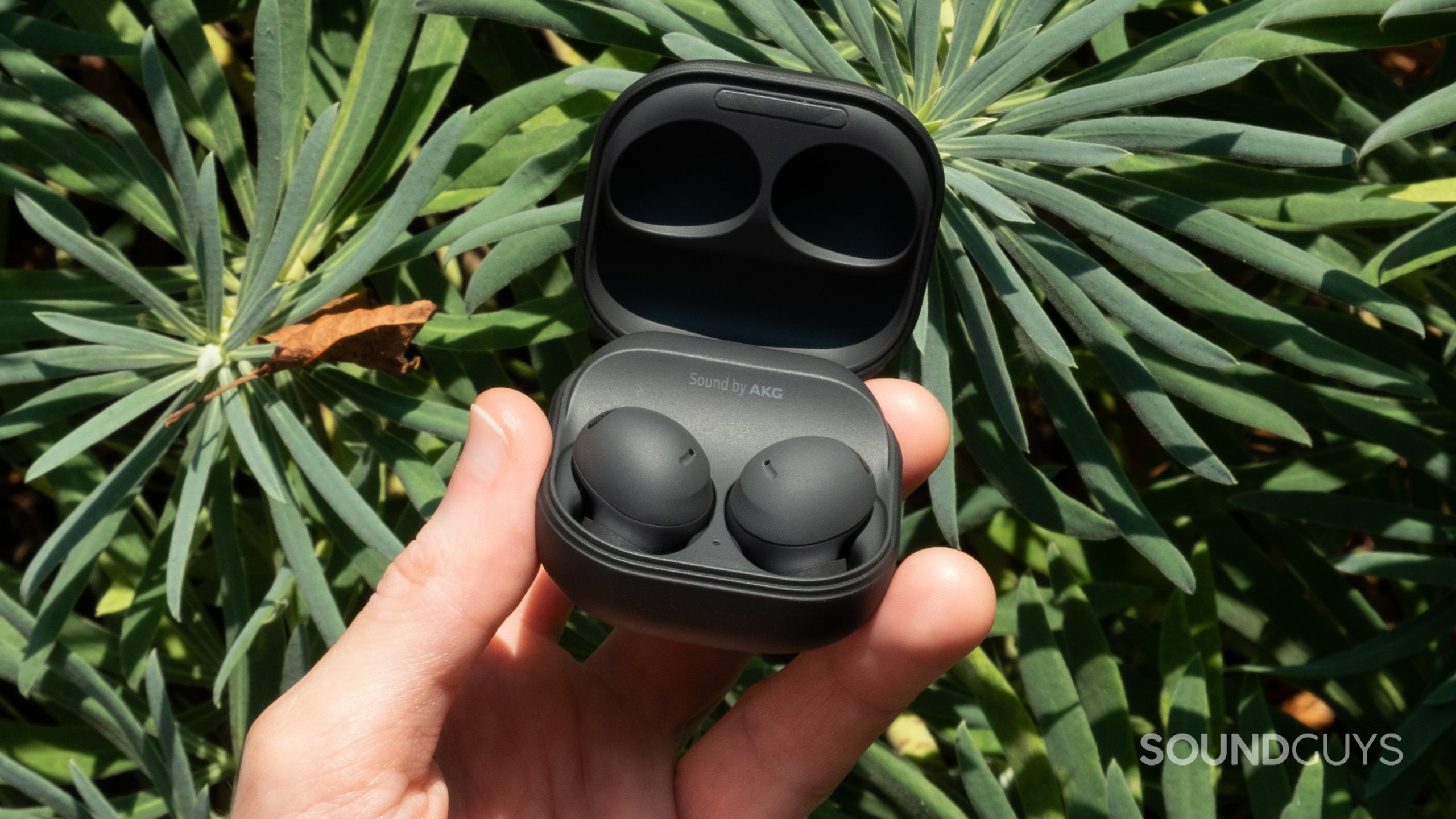
Samsung users will want to consider the Samsung Galaxy Buds 2 Pro. They have outstanding ANC performance, IPX7 water resistance rating, and excellent sound quality. They also feature Bluetooth 5.3 and support the Samsung Seamless Codec. This is especially useful for Samsung Galaxy device owners, as this codec provides a higher quality Bluetooth streaming experience when compared to the standard AAC and SBC codecs. Oh, and the Samsung Galaxy Buds 2 Pro is about $70 cheaper than the Sony WF-1000XM5 for $179 at Amazon. Though Samsung has released a successor to these earbuds, we don’t imagine those in the market for earbuds like the Sony WF-1000XM5 will be drawn to poorer ANC, or the lollipop design.
Speaking of Android phones, Google Pixel device owners should get the Pixel Buds Pro. These earbuds support Bluetooth multipoint, Google Fast Pair, and Hands-free Google Assistant access. They also feature decent ANC performance and good battery life. The main downside to the Pixel Buds Pro is its heavy bass response. Then again, EDM and hip-hop enthusiasts may get a kick out of the extra thump in their kick drums. The Pixel Buds Pro is available for $199, which makes it almost $100 cheaper than the Sony WF-1000XM5.
Frequently asked questions
Yes, the Sony WF-1000XM5 features Ambient Sound Mode. This can be activated by tapping once on the left earbud or through the Sony Headphones Connect app.
Yes, the Sony WF-1000XM5 features six microphones—three on each earbud.
Yes, you can charge the Sony WF-1000XM5 with any Qi wireless charger.
Yes, the Sony WF-1000XM5 supports Bluetooth multipoint. You can connect up to two devices simultaneously.
Yes, the Sony WF-1000XM5 works with iPhone, though you will be limited to streaming using the AAC Bluetooth codec.
Yes, the Sony WF-1000XM5 features six microphones, with three on each earbud.
The Sony WF-1000XM5 are an excellent choice for runners, hikers, and gym-goers. It features an IPX4 water resistance rating, meaning the earbuds shouldn't be damaged by sweat.